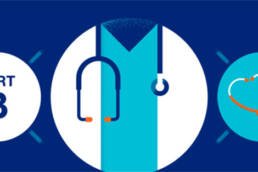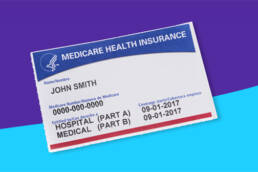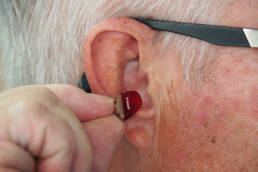Key Takeaways
• Telemedicine is a new reality for all of us.
• Here are four tips to help make sure your telemedicine visit is as beneficial as possible.
• Before you schedule a telemedicine visit, check with your health insurance provider to make sure that the service is covered.
Access to telemedicine has increased in recent years, providing new ways to interact with your health care team and keep on top of your health care needs. From the convenience of your home, you can now interact directly with your health care team, which is especially helpful if you live far away from your providers, have a chronic condition that requires frequent check-ins, or have difficulty getting to appointments.
The COVID-19 pandemic greatly increased the adoption of tele- medicine—both by health care providers and individuals—and telemedicine is now a new reality for all of us.
Telemedicine—or virtual visits— currently include various modes
of interaction with your healthcare team including video chats, phone calls, and email. Preparing for a telemedicine visit is similar to prepping for any healthcare visit, but there are a
few important extra steps that you will want to take to get the most out of your time with your health care provider. Here are four key tips to help make your telemedicine visit as beneficial as possible:
1. Prepare for the visit
• Write down a list of symptoms and concerns; be specific. • Practice what you want to say. That way, you won’t leave anything out.
• Write down a list of all medications (prescription and non-prescription).
• Check your technology. (If you do not have a computer, tab- let, or smart phone, ask a family member for help.)
2. Find a quiet space
• Turn off background noise such as TVs, radios, and smart speakers.
• Ask others in your home to keep the noise level down.
• Allow yourself 10-15 minutes before the video/phone call to collect your thoughts. For privacy, consider using headphones during the call.
3. Tell your health care provider everything
• Summarize your condition, list all symptoms, and explain your concerns.
• Share any changes in your medical history and any major life changes.
• Provide any vital signs that you can such as blood pressure, pulse, and temperature.
4. Agree on a treatment plan
• After your doctor tells you something, repeat it back in your own words.
• Take notes and ask questions such as: What are the risks/ benefits of treatment? Are there other ways to treat this? Will insurance pay? Will I need medication?
• Agree on the treatment plan and any additional tests/medi- cations.
• Ask your health care provider for resources and about fol- low-up visits.
As with any health care visit, it’s ideal if you can have a friend or family member by your side. That person can be respon- sible for taking notes so that you can focus fully on your conversation with your doctor or health care team. During the COVID-19 pandemic, the federal government expanded tele- medicine services for Medicare beneficiaries to cover telemed- icine visits. (Many private insurance companies did the same for those not covered by Medicare.) Included in telemedicine coverage are e-visits (an email exchange via a secure online patient portal) and telephone calls. Most of this expanded coverage will extend through Dec. 31, 2024. 972-3307



















































































































